Intro
Learn about Mental Health Emergency Response, including crisis intervention, suicidal thoughts, and emotional distress, to ensure effective support and care during psychological emergencies.
Mental health emergencies can arise at any moment, and it's crucial to have a plan in place to respond effectively. A mental health emergency is a situation where an individual's feelings, behaviors, or thoughts pose an immediate danger to themselves or others. This can include suicidal thoughts, severe psychotic episodes, or violent outbursts. In such situations, it's essential to know how to respond to ensure the individual's safety and well-being.
Responding to a mental health emergency requires a combination of empathy, understanding, and prompt action. It's vital to approach the situation with sensitivity and care, as the individual may be experiencing extreme distress or anxiety. By providing a supportive and non-judgmental environment, you can help the person feel more at ease and increase the likelihood of a positive outcome. In this article, we'll explore the importance of mental health emergency response, the benefits of having a plan in place, and the steps you can take to respond effectively.
Mental health emergencies can have severe consequences if not addressed promptly and effectively. The risk of harm to oneself or others is high, and the situation can escalate quickly if not managed properly. Furthermore, the emotional and psychological impact of a mental health emergency can be long-lasting, affecting not only the individual but also their loved ones and the community at large. By having a plan in place and knowing how to respond, you can help mitigate these risks and ensure a more positive outcome.
Mental Health Emergency Response Plan
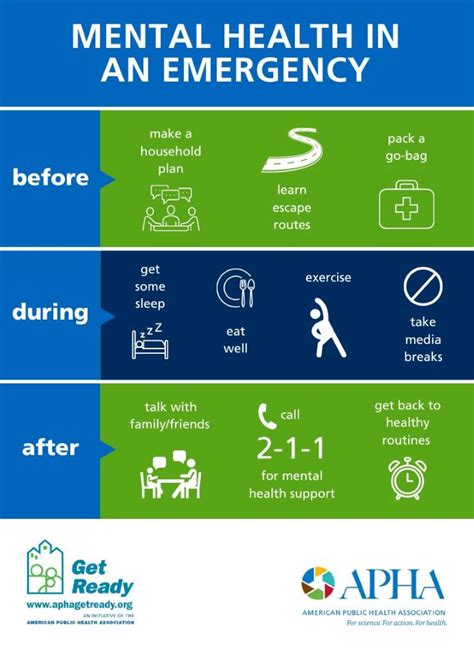
A mental health emergency response plan is a comprehensive strategy that outlines the steps to take in the event of a mental health crisis. This plan should include information on how to identify the signs of a mental health emergency, how to respond, and where to seek help. Having a plan in place can help reduce the risk of harm, ensure prompt and effective response, and provide a sense of security and comfort for the individual and their loved ones.
Identifying the Signs of a Mental Health Emergency
Identifying the signs of a mental health emergency is crucial in responding effectively. Some common signs include suicidal thoughts or behaviors, severe psychotic episodes, violent outbursts, and extreme anxiety or panic. It's essential to be aware of these signs and to know how to respond if you encounter them. By being proactive and taking prompt action, you can help prevent the situation from escalating and ensure the individual receives the help they need.Benefits of a Mental Health Emergency Response Plan
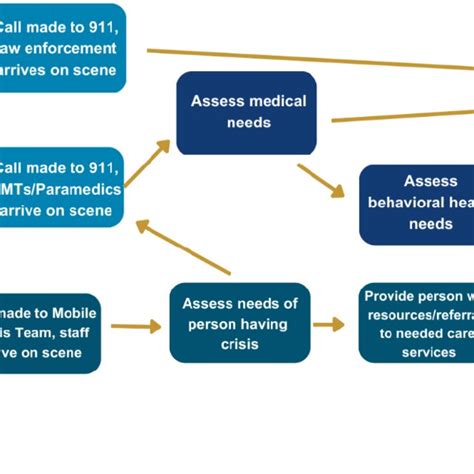
Having a mental health emergency response plan in place can have numerous benefits. Some of the key advantages include:
- Reduced risk of harm: By having a plan in place, you can respond quickly and effectively, reducing the risk of harm to the individual and others.
- Improved outcomes: A prompt and effective response can improve the likelihood of a positive outcome, reducing the risk of long-term emotional and psychological damage.
- Increased sense of security: Having a plan in place can provide a sense of security and comfort for the individual and their loved ones, reducing anxiety and stress.
- Better coordination of care: A mental health emergency response plan can help ensure that the individual receives the care and support they need, coordinating with mental health professionals and emergency services as necessary.
Steps to Respond to a Mental Health Emergency
Responding to a mental health emergency requires a combination of empathy, understanding, and prompt action. Some of the key steps to take include:- Stay calm and composed: It's essential to remain calm and composed, even in the face of a crisis. This can help the individual feel more at ease and increase the likelihood of a positive outcome.
- Assess the situation: Take a moment to assess the situation, identifying the signs of a mental health emergency and determining the best course of action.
- Provide a supportive environment: Create a supportive and non-judgmental environment, providing a sense of safety and security for the individual.
- Encourage open communication: Encourage the individual to communicate openly and honestly, listening actively and providing emotional support.
- Seek help: If necessary, seek help from mental health professionals or emergency services, ensuring the individual receives the care and support they need.
Mental Health Emergency Response Strategies
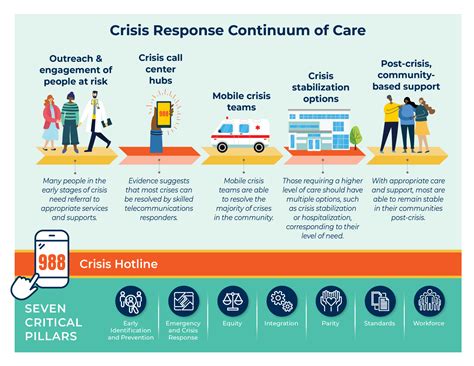
There are several mental health emergency response strategies that can be effective in responding to a crisis. Some of the key strategies include:
- De-escalation techniques: De-escalation techniques can help reduce the risk of violence and aggression, creating a safer environment for the individual and others.
- Crisis intervention: Crisis intervention involves providing immediate support and guidance, helping the individual to manage their emotions and behaviors.
- Trauma-informed care: Trauma-informed care involves providing care and support that is sensitive to the individual's experiences and needs, reducing the risk of re-traumatization.
Challenges and Limitations of Mental Health Emergency Response
While mental health emergency response plans and strategies can be effective, there are also challenges and limitations to consider. Some of the key challenges include:- Limited resources: Mental health emergency response plans may be limited by a lack of resources, including funding, personnel, and equipment.
- Stigma and bias: Stigma and bias can create barriers to care, reducing the likelihood of individuals seeking help and increasing the risk of negative outcomes.
- Complexity of mental health emergencies: Mental health emergencies can be complex and nuanced, requiring a high degree of expertise and understanding to respond effectively.
Best Practices for Mental Health Emergency Response
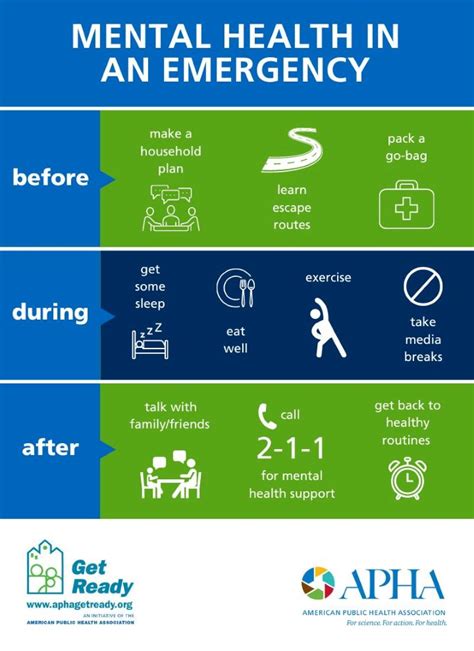
There are several best practices for mental health emergency response that can help ensure effective and supportive care. Some of the key best practices include:
- Providing trauma-informed care: Trauma-informed care involves providing care and support that is sensitive to the individual's experiences and needs, reducing the risk of re-traumatization.
- Using de-escalation techniques: De-escalation techniques can help reduce the risk of violence and aggression, creating a safer environment for the individual and others.
- Fostering a supportive environment: Creating a supportive and non-judgmental environment can help the individual feel more at ease, increasing the likelihood of a positive outcome.
Technology and Mental Health Emergency Response
Technology can play a critical role in mental health emergency response, providing new and innovative ways to support individuals in crisis. Some of the key technologies include:- Mobile apps: Mobile apps can provide immediate support and guidance, helping individuals to manage their emotions and behaviors.
- Online platforms: Online platforms can provide a safe and supportive environment, connecting individuals with mental health professionals and peers.
- Telehealth: Telehealth involves providing care and support remotely, increasing access to mental health services and reducing the risk of negative outcomes.
Mental Health Emergency Response Training
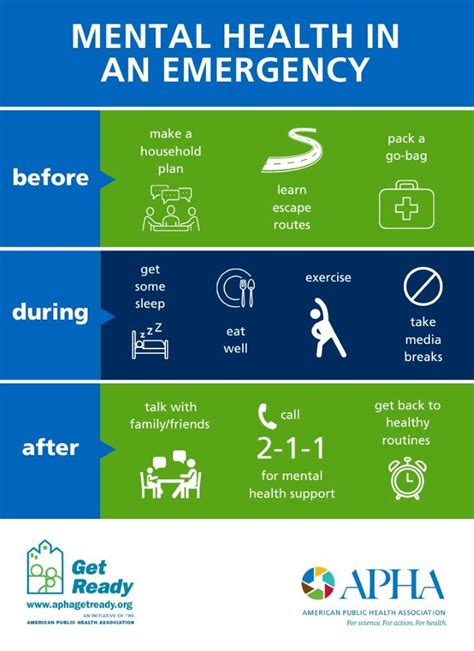
Mental health emergency response training is essential for individuals who may encounter mental health emergencies in their work or personal lives. This training can help individuals develop the skills and knowledge they need to respond effectively, reducing the risk of harm and improving outcomes. Some of the key components of mental health emergency response training include:
- Identifying the signs of a mental health emergency
- Responding to a mental health emergency
- Providing trauma-informed care
- Using de-escalation techniques
Conclusion and Next Steps
In conclusion, mental health emergency response is a critical aspect of supporting individuals in crisis. By having a plan in place, responding effectively, and providing supportive care, we can reduce the risk of harm and improve outcomes. If you or someone you know is experiencing a mental health emergency, don't hesitate to seek help. Contact a mental health professional or emergency services immediately, and provide a supportive and non-judgmental environment.We invite you to share your thoughts and experiences with mental health emergency response in the comments below. Your input can help us better understand the challenges and opportunities of responding to mental health emergencies, and inform the development of more effective strategies and plans.
What is a mental health emergency?
+A mental health emergency is a situation where an individual's feelings, behaviors, or thoughts pose an immediate danger to themselves or others.
How can I respond to a mental health emergency?
+Responding to a mental health emergency requires a combination of empathy, understanding, and prompt action. Stay calm, assess the situation, provide a supportive environment, encourage open communication, and seek help if necessary.
What are some common signs of a mental health emergency?
+Some common signs of a mental health emergency include suicidal thoughts or behaviors, severe psychotic episodes, violent outbursts, and extreme anxiety or panic.
